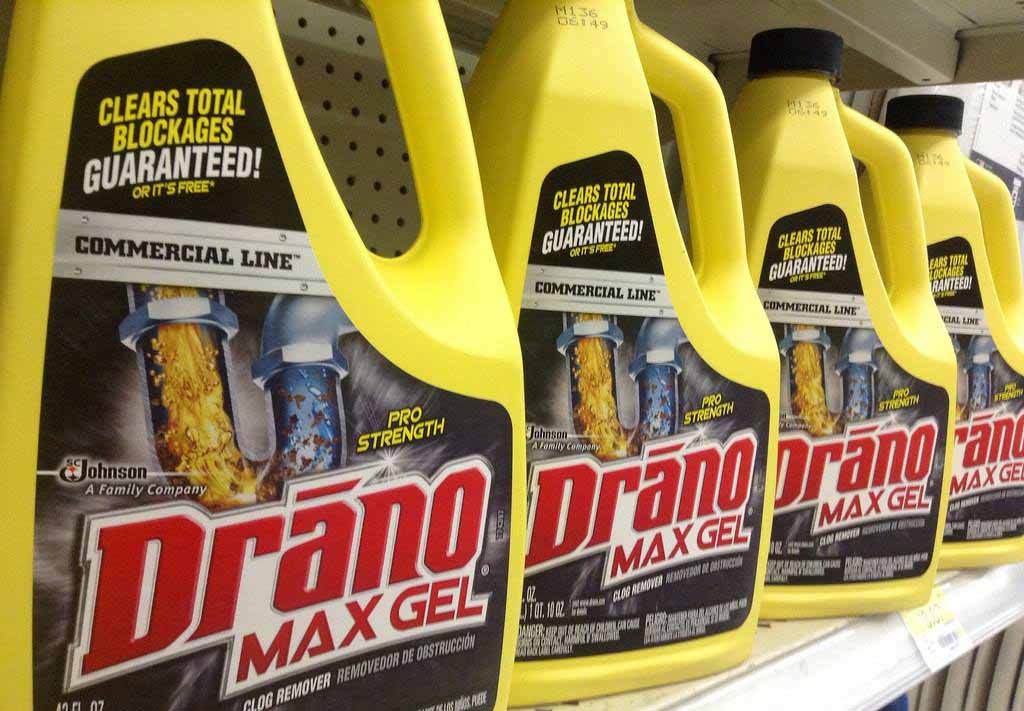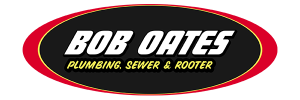Is Drano Bad for Pipes? What About Other Off-The-Shelf Drain Cleaners?
CALL (206) 789-4944
Serving the Greater Seattle Area

Here’s the problem with liquid drain cleaners:
So many times in the life of a plumber do we come upon a fully clogged kitchen sink or tub that is full of drain cleaning chemicals. Most of the time we can smell it as soon as we enter the home, especially if an acid-based product was used.
We know what you may be saying to yourself right now: “But wait! The commercial shows how easy it is to clear a clogged drain by simply pouring it right through the backed-up sink and within minutes it clears itself!”
Unfortunately, this has not been our experience. As a matter of fact, we’ve never seen the product completely clear or clean a clogged drain line. This is because most drain lines are anywhere from a few feet in length (in most apartments) to more than 25’ feet in your average single-family home.
After many years, sometimes decades, the entire pipe can become clogged like an artery to your heart. Unfortunately, a few ounces of drain cleaner cannot do what you hope it will! And stronger, acid-based chemicals can actually harm your plumbing, which we’ll address below.
So, the question isn’t only “Does Drano damage pipes?” Instead, it’s more accurate to ask, “Are these off-the-shelf options both safe and effective?”
In this article, we’ll cover both the right way and the wrong way to use liquid drain cleaners, including four problems posed by Drano and other off-the-shelf products.
DIY Is OK — If You Do It Right
Most of the time, when a customer has a clogged sink or drain, they will try a liquid or crystal drain cleaner from the supermarket. Hardened DIY-ers will go one step further & buy a concentrated acid from the local hardware store.
The problem with this is that homeowners rarely follow the directions exactly as they are laid out on the product packaging.
The thinking usually goes like this: “The label says I only need a little. If a little is good, a lot has to be better, because I must have a bigger problem than the directions on the label are referring to.” Or so they think!
After a day or more of waiting, plunging & praying, the water is still standing — unlike in the commercial where it cleared right away! — and now it’s time to call in the pros to get everything back in running order.
And that’s exactly what professional drain cleaning services are here for! But please know that the last thing a professional drain cleaner or plumber wants to do is work on a clogged sink or drain that is completely full of chemicals and/or acid. It burns our skin, creates holes in our clothes, and damages the cables that we use to perform our job!
So, our advice at Bob Oates Sewer & Rooter is that “less is more.” Follow instructions and use a drain cleaning product when you first notice a slow draining sink or tub — don’t wait. Run a little warm water first, allowing it to drain, then be sure to follow the instructions on how much product to use & observe any follow up advice from the manufacturer.
Follow this procedure over a few days if possible while refraining from using the sink or tub while attempting this solution as to give the product time to dissolve the build-up (usually soap, grease, hair & the like).
And if you are the least bit unsure about the product’s ability, are concerned about safety issues regarding the use of chemicals, or simply aren’t seeing the results you expected, call a professional for drain clog removal.
Four Concerns To Keep In Mind If Using Drano or Similar Products
Environmentally Unsafe Ingredients
Commercial drain cleaners, like Drano, often have harmful components detrimental to both homes and aquatic ecosystems. These toxic materials can find their way to water bodies, impacting plants, wildlife, and even our food and water. It’s crucial for households to store cleaning agents away from food, children, and pets. Always keep poison control hotline numbers within reach for emergencies or guidance on disposing of chemicals.
Risks to Children
Liquid drain cleaners come with warning labels, but children may overlook these warnings or are simply too young to read them. Prioritize safety by opting for less harmful alternatives or securely storing dangerous chemicals. Exposure to Drano can lead to immediate and severe burns. If spilled, remove affected clothing and rinse the skin. Combining Drano with other cleaners may produce toxic gasses, necessitating immediate evacuation. If ingested, contact a poison control center and get medical help without delay.
A Danger to Pets
Pets face similar risks as children from household chemicals, being unable to understand warnings or seek help. Store these products out of their reach and avoid using them on surfaces pets frequent. Pets can spread chemicals throughout homes, leading to irritated paws or ingestion from grooming. Safe storage and careful use are essential to protect our furry companions.
Further Pipe Damage
To bring it back around to where we started: Is Drano bad for pipes? The chemicals in off-the-shelf drain cleaners may not solve all clogs, and they can lead to a worsening of pipe issues due to build up in a clogged area, and corroding the pipe. Some stronger chemicals, like muriatic acid or sulfuric acid, can do more harm than good, especially if your home is older and has metal, galvanized or cast iron drain pipes. In concentrated amounts, the acid will “eat” through the pipe if not flushed out immediately — and that’s when things will go from bad to worse.
Liquid Drano isn’t an acid; it’s more like an alkaline, a very powerful alkaline that’s up to 10,000 times higher than normal pH. In today’s modern world, we have to ask ourselves if we really want to use & handle such chemicals in our homes — remember, your plumbing system eventually leads back into the environment.
Wrapping Up
Safe and green alternatives are available to consumers who are concerned about the potential effects of Drano on one’s home and the environment. Baking soda, plungers, drain snakes, and manual cleaning of pipe traps are tools and strategies that homeowners might prefer for maintaining their systems.
And if you do decide to use off-the-shelf drain cleaners like Drano, be sure to follow the instructions to the letter. The more time you give the product to do its job, the better it will work. And if it doesn’t, give us a call — Bob Oates Sewer & Rooter will succeed where chemicals fail!
CALL (206) 789-4944
Serving the Greater Seattle Area





